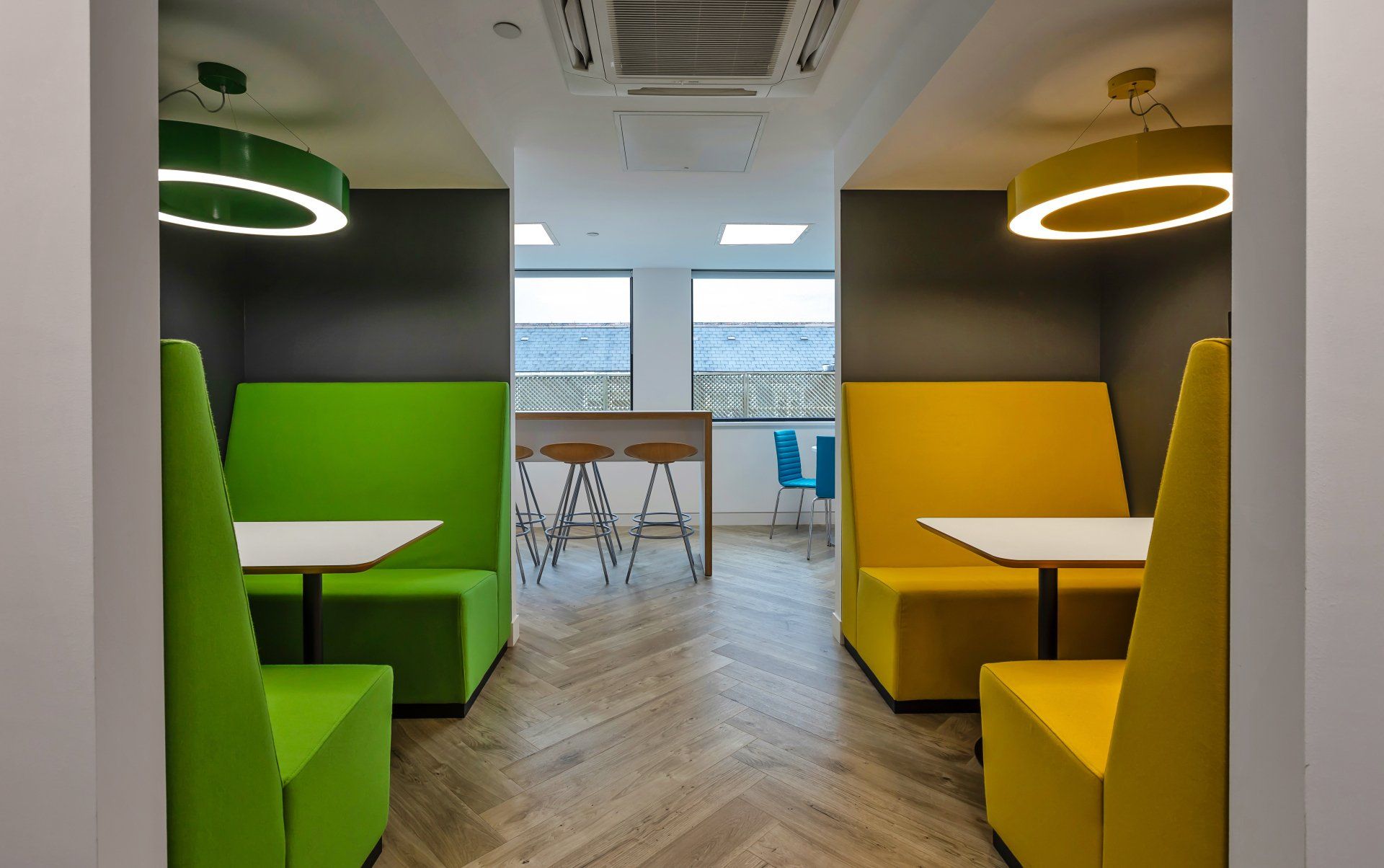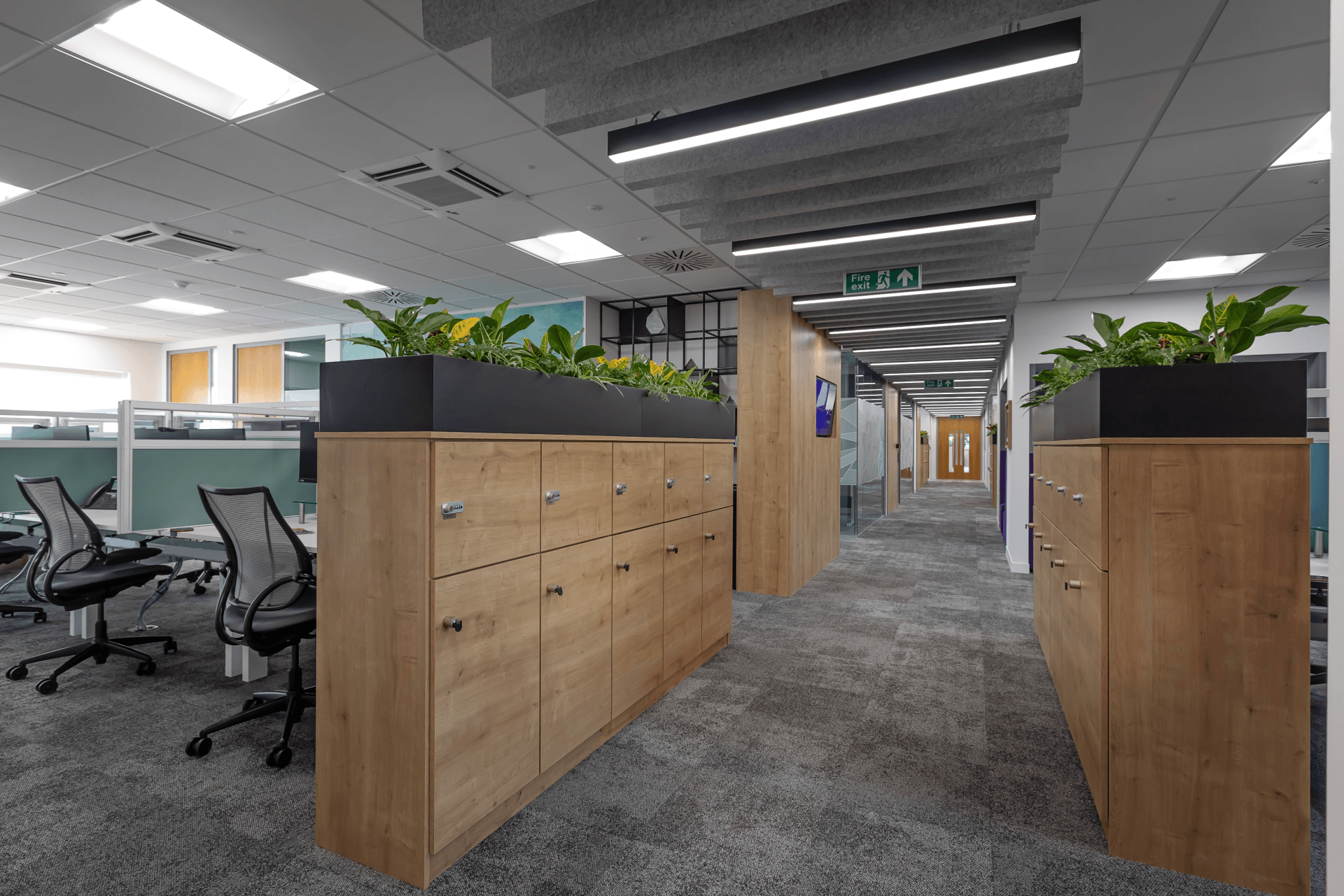Creating an inclusive workplace is something we should all strive to do, as supporting and encouraging the diversity of your workforce is what makes for a stronger team. But did you know that
1 in 7 (over 15% of) people in the UK are neurodivergent?
These individuals can range from having Autism Spectrum Disorder (ASD), ADHD or Dyslexia to less commonly discussed diagnoses such as Dyscalculia or Dyspraxia. Each of these affects people differently, so it’s important to create an environment where staff members feel comfortable and productive. Here are our recommendations for creating a neurodiverse-friendly workplace:
Create Hybrid Environments

Hybrid working spaces can be beneficial to all employees, however they can definitely have a positive impact on those that are neurodivergent.
Certain spaces can prove unproductive or overstimulating for those with neurodiverse conditions and can become overwhelming. For example, an employee with Attention Deficit Disorder (ADD) may find it distracting to be at a desk surrounded by the chat of a buzzing office, and prefer to work in a quieter, more private place.
This is why providing varied working spaces can be hugely beneficial, as it gives staff members the freedom to take charge of their productivity. At Glenside, we have designed a myriad of agile & hybrid working environments like these to benefit a variety of businesses.
Allow for Lighting & Temperature Tolerances
Additionally, neurodivergent people can often suffer from sensory discomfort or overload in different environments. This is something that can be prevented with a thoughtful workplace design.
Implementing circadian rhythm lighting to adapt to the changing times of the day, or having effective heating and cooling systems installed to allow for comfortable and regular temperatures can benefit staff.
Both of these could effectively prevent sensory overload for neurodiverse employees, and are features which we offer as part of our commercial design services at Glenside. Get in touch with us to find out more.
Use Neutral and Muted Tones in your Design
Another way to prevent overstimulation can be through the use of colours in the workplace, as bright or bold palettes have the potential to cause a sensory overload in neurodiverse staff members.
By choosing a more calming or neutral colour scheme for your design, you’ll do well to prevent this and maintain a more comfortable environment for your staff.

Neurodiversity in the workforce isn’t something to be fearful of when it comes to commercial redesign, as the likelihood is that every business has neurodiverse employees. Rather, it provides a chance to be thoughtful and inclusive throughout the design process.
This is something that we have 50 years of experience with at Glenside, as we’ve transformed many workplaces for diverse companies across a variety of industries. Contact us to
book your visit to our showroom in Reading today.
Glenside Commercial Interiors have been designing, planning and fitting out high-quality workplaces for 50 years.
Get in touch with us now to discuss your project with our talented designers.
View more insights: Office Design I Industrial Property I Laboratories I Wellbeing & Productivity I Company Updates
Join Our Mailing List
We will get back to you as soon as possible.
Please try again later.
All data is handled inline with our Privacy Policy and you may unsubscribe at any time.

Quick links.
Glenside Commercial Interiors is a trading name of Glenside Commercial Interior Projects Limited registered in England with Registration Number 14000423. VAT No. 408 5792 72
All Rights Reserved


